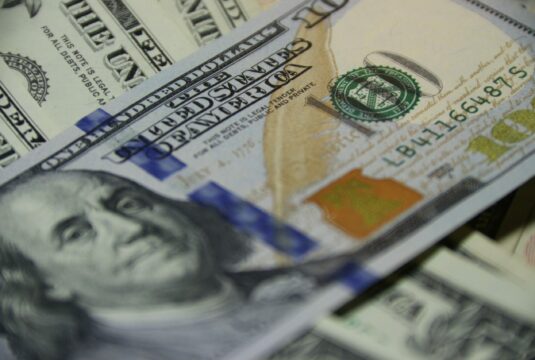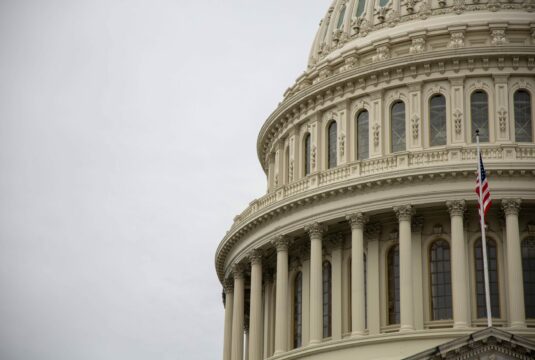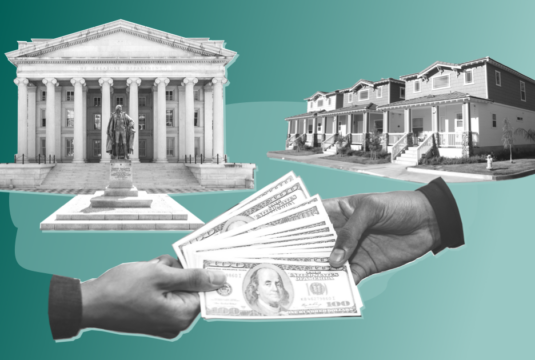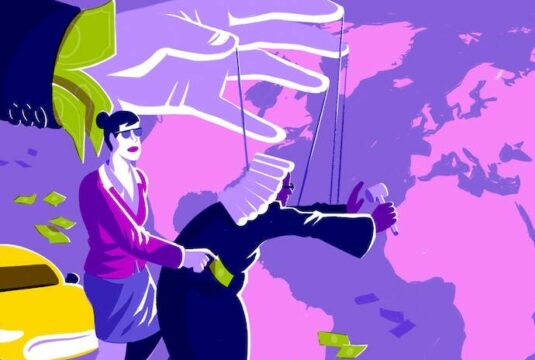Transatlantic Task Force to Track Russian Dirty Money has Critical Role
Although it comes regrettably late, key leading economies are stepping up to identify kleptocrats’ assets. Transparency International shares recommendations to speed the task force’s effectiveness
March 7, 2022
Transparency International, its EU and US offices, and six national chapters in Canada, France, Germany, Italy, Netherlands and the UK commend measures announced to and and seize dirty money after Russia’s invasion of Ukraine.
Transparency International expresses solidarity with the people of Ukraine facing a horrific assault on their country. We also stand behind Russian citizens who, for years, have been denouncing the Russian government’s abuse of power. Russia’s authoritarian rule and military aggression in Ukraine is powered by long-standing kleptocracy, and we must work together to root it out.
Governments in leading democracies have enabled cross-border corruption in Russia through their inertia in reforming and implementing effective regulation to clamp down on dirty money. Russia’s attack on Ukraine may finally be the bitter wake-up call they needed, as seen by a series of measures announced throughout the week. In particular, we welcome the establishment of a transatlantic task force to freeze and seize the assets of Russian officials and elites with close ties to the Russian government.
The task force – consisting of Canada, the European Commission, France, Germany, Italy, UK and the US – committed to working together across borders to disrupt illicit financial flows and to identify those hiding their identities and assets from recently imposed sanctions.
After years of looking the other way, these governments have a duty to urgently trace and freeze assets, before kleptocrats can smuggle them away.
For the transatlantic task force to be fully effective, Transparency International makes the following recommendations.
Broaden its membership. Other key financial centres that have provided safe harbour for the Russian elite and that share the task force’s objectives should join and commit to identifying and freezing assets. Other EU members, including the Netherlands, should join in the work of the task force as significant amounts of Russian dirty money are likely hidden across the Union.
Map networks of nominees, proxies and family members. Many of the targeted individuals enlist nominees, cronies and family members who control companies or hold assets on their behalf. To uncover hidden wealth, investigations should be extended to these individuals.
Utilise all available data and investigative tools. To identify suspicious assets and illicit movements of money, the task force should make use of existing data and share this information with other members. This information should at the very least include company and beneficial ownership data, real estate ownership information, asset ownership information, investments in hedge funds and private equity, and bank account registers.
Cooperate with financial intelligence units. Access to suspicious transactions and intelligence reports are important to map networks and detect assets. The task force should include members of financial intelligence units and be able to effectively exchange information.
Coordinate across domestic and foreign authorities. Coordination with domestic efforts like the recently created Task Force Kleptocapture in the US, as well as with other financial centres will be important given the cross-border nature of the illicit flows.
Compel obliged entities to cooperate. Organisations with anti-money laundering obligations – including investment fund managers, banks and real estate agents – must screen their customers for possible connections with targeted individuals and report to authorities.
Sanction those aiding and abetting. Corporate service providers, lawyers, accountants, real estate agents and banks that systematically help corrupt Russian officials and elites close to power to hide their investment and assets should be held accountable.
Dedicate sufficient resources. Law enforcement agencies have been underfunded, particularly to deal with complex cases. Governments should ensure adequate human, technical and financial resources for the task force.
Release information publicly. To contribute to accountability and enable other authorities, investigative journalists and civil society to additionally scrutinise the data, openly share the details of the network of companies and individuals. To improve policies and enforcement actions, the task force should document the gaps and challenges faced in tracing assets.
Collaborate with civil society and journalists. The task force should guarantee a continued dialogue with civil society organisations and journalists that have been documenting loopholes in the financial system and how kleptocrats hide and move their assets across borders. They are certainly in a good position and stand ready to support this effort and to make the task force as effective as possible.
Maíra Martini, corrupt money flows expert at Transparency International, said:
“This transatlantic task force is critical: measures put in place to end the invasion of Ukraine will only be effective if corrupt officials have nowhere to hide their money. Many of the illicit assets are hidden through complex corporate mechanisms across a great number of jurisdictions, making cross-border collaboration the key to uncover their dirty money.
“This task force has a clear and immediate mandate to freeze the assets of those who, directly or indirectly, support this war. In the future, this should evolve into an effective model to deal with cross- border corruption and hold kleptocrats to account everywhere.”
Transparency International's representatives from countries also shared their perspectives:
Hartmut Bäumer, chair of Transparency International Germany, called on Germany and all countries to take quick steps:
“For years we have criticised the ease with which dirty money can be hidden in Germany and other leading economies. Now that we are trying to freeze the assets of Russian oligarchs, our failure is all the more clear as we don't know or can't prove what real estate and other assets they actually own. We hope that countries now move quickly to establish beneficial ownership registers and structures for international cooperation to stop dirty money.”
James Cohen, executive director of Transparency International Canada, noted the government's recent efforts but called for quicker implementation:
“Canada has been slammed for years by international and domestic observers for being lax on addressing money laundering, or ‘snow washing’ as it is known. Thankfully we have seen different levels of government in Canada start to correct course including the federal government calling for a publicly accessibly beneficial ownership registry. But the timeline for implementing the registry is 2025. The horror of Russia’s invasion of Ukraine demonstrates that Canada must act with urgency and address kleptocracy with allies as the threat that it is.”
Duncan Hames, director of policy at Transparency International UK, celebrated the decision to join the task force and called for additional steps:
“It is good to see Britain moving in concert with other leading economies to ensure Russian kleptocrats have nowhere to hide. We also need offshore financial centres in British overseas territories to fully co-operate with this task force in order to end the secrecy that shields those with dirty money.”
Gary Kalman, director of the Transparency International US office, highlighted the need for leading economies and especially the US to target financial secrecy:
“The creation of the task force is a clear recognition that illicit finance is a global problem and that western economies that harbour much of the dirty money have a special responsibility to and it and keep it from fueling further conflict. The U.S., in particular, needs to ensure that those who assist in setting up the secret accounts and companies are no longer able to do so and that the financial intelligence agencies now charged with ending the dirty money have ample resources to do what we need them to do.”
Signatories:
Transparency International Canada Transparency International EU Transparency International France Transparency International Germany Transparency International Italy Transparency International Netherlands Transparency International UK Transparency International US
For any press inquiries, please contact:
See contacts for chapters: Transparency International’s national chapters Transparency International Secretariat: press@transparency.org











